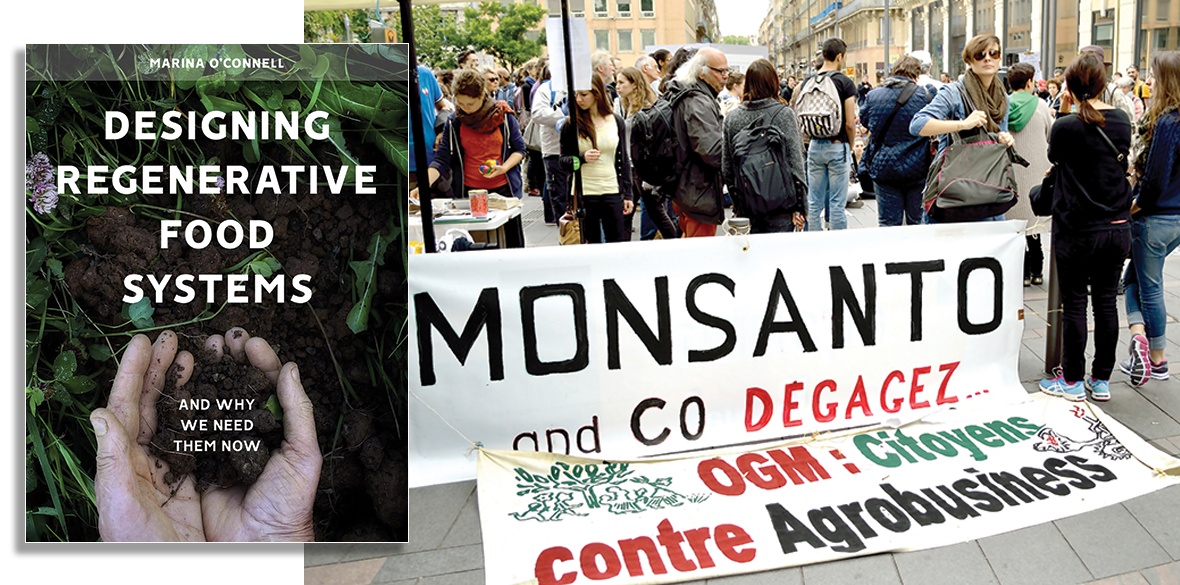This is the last article you can read this month
You can read more article this month
You can read more articles this month
Sorry your limit is up for this month
Reset on:
Please help support the Morning Star by subscribing here
Designing Regenerative Food Systems
by Marina O’Connell
Hawthorn Press, £25
THIS book is highly relevant to the challenges facing both agriculture and food production.
The author argues that in the 21st century we face “a perfect storm: the need to mitigate and adapt to climate change; catastrophic loss of biodiversity; the rising human population and rising health issues owing to poor diet in the global north and food shortages in the global south.”
Marina O’Connell outlines alternative food production systems which, it is argued, will address these issues.
They include: biodynamic; organic; permaculture; agroforestry; agroecological and regenerative agriculture.
These systems have significant differences, but have in common a concern with soil quality, carbon neutrality, food quality and maximising biodiversity.
They all believe that the use of pesticides and soluble mineral fertilisers damage the soil and harms the microorganisms that exist in the soil which play an important role in plant health.
The use of composts is seen as essential in putting back nutrients into the soil along with the use of animals for grazing and their manure.
The case for a holistic approach to agriculture taking into account of plants, people, mechanisation, processing and transport is well made, with the conclusion that where possible a closed loop system of farming is preferred, ie, where all inputs to the farm should be generated on the farm itself.
Not unsurprisingly the author is highly critical of “industrial farming” (conventional intensive) yet recognises that it “can produce the most food and solve lots of the challenges facing farming.”
Where I feel the book is sadly lacking is that much of the evidence presented is conjecture and hypothesis.
The overwhelming majority of the references quoted are not from peer-reviewed scientific journals but are taken from publications and from authors with similar views to the author.
Many contentious claims are made without any scientific supporting evidence and some are highly questionable.
Specifically, the section on biodynamic production (drawn from the ideas of Steiner) refers to mystic and traditional beliefs as part of its justification.
It is regrettable that such an important subject should be presented in this way. Agriculture is at core a science and any new ideas must be rigorously evaluated.
A second major criticism of the book is the complete lack of analysis of the economics of food production and the role that multinational companies play.
Modern agriculture on a world scale is clearly run to maximise profit not to feed people.
Poverty results in high population growth, high infant mortality and malnutrition in the global South.
Poverty is not a result of inappropriate agriculture production systems, but is due to an economic system where the North exploits the South and shareholders reap the profits generated by the agricultural worker.











